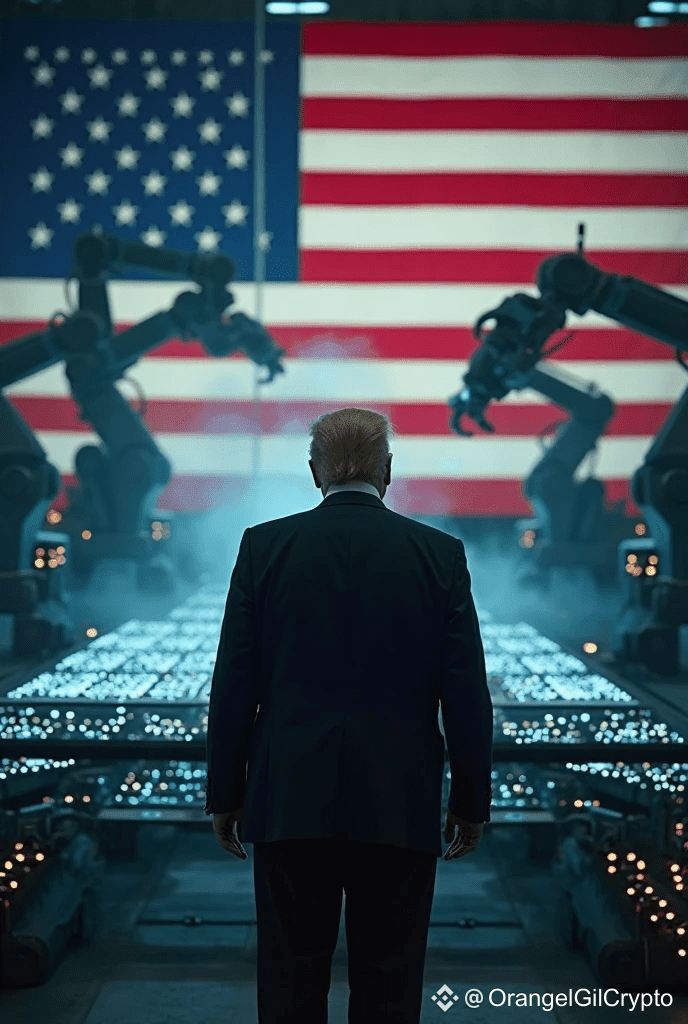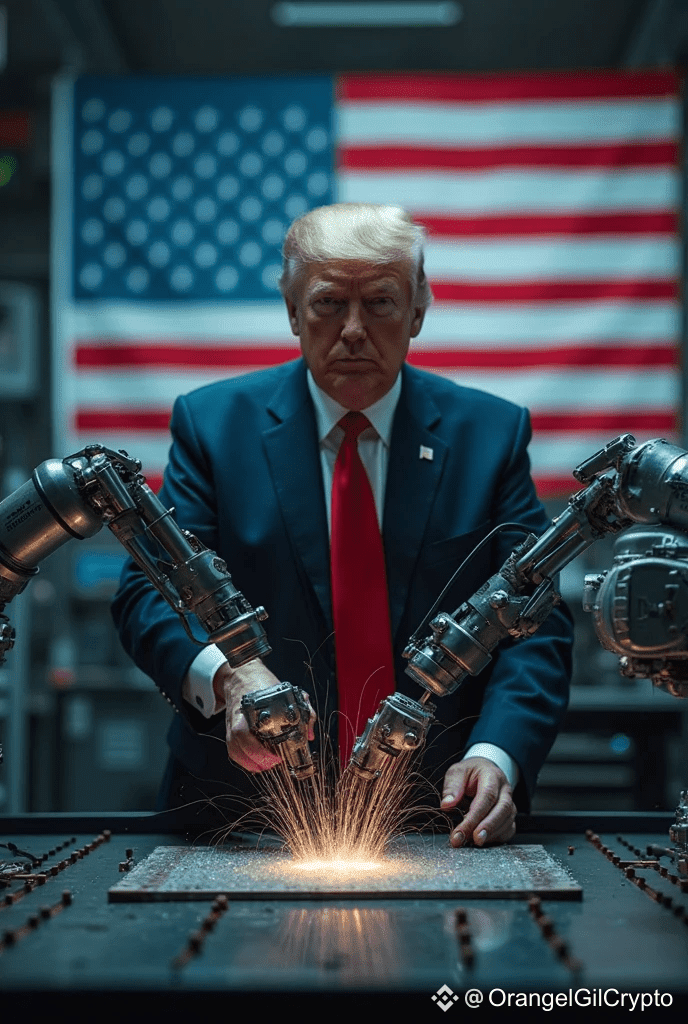🧠 Strategic Powerplay or Market Mayhem?
Trump threatens 100% tariffs on foreign-made chips—crypto could be the next collateral victim.
💥 A Tariff Tsunami That Could Reshape Global Tech
Former U.S. President Donald Trump, gearing up for a potential return to the White House, has issued a bold ultimatum to global tech firms: manufacture semiconductors in the U.S., or face crippling 100% tariffs. “If you want to sell chips in America, build them in America,” Trump said in a campaign stop in Michigan this week, sending shockwaves through both Silicon Valley and international supply chains.
Semiconductors power everything from AI to smartphones, but their role in crypto mining hardware, blockchain data centers, and decentralized infrastructure is more critical than ever. The crypto ecosystem, especially DeFi protocols and proof-of-work chains, relies on advanced GPUs and ASIC chips—many of which are manufactured in Taiwan, South Korea, and mainland China.

📉 Supply Chains, Silicon and Satoshi: What’s at Stake for Crypto?
Dr. Angela Walch, professor at St. Mary’s School of Law and researcher at the UCL Centre for Blockchain Technologies, warned:
“Tariff escalation targeting chips might start as a geopolitical chess move, but the fallout could directly impact transaction speeds, mining economics, and decentralization efforts in the crypto space.”
Industry insiders are equally uneasy. Kevin Xu, former global strategy lead at OCI and current partner at Interconnected Capital, said:
“Crypto mining farms in Texas or Argentina running on imported chips could see operational costs double or worse.”
The Bitcoin hashrate, Ethereum L2 scalability, and even AI-integrated blockchain ecosystems could see disruptions if high-performance chips become scarce or exorbitantly priced.

🇺🇸💼 Political Leverage or Industrial Revival?
Trump’s strategy follows a carrot-and-stick model: penalize outsourcing while dangling tax incentives for domestic chip production. The U.S. CHIPS Act already allocated $280 billion to revitalize American semiconductor manufacturing, but experts argue that even that won’t be enough to meet global crypto infrastructure demands.
Vinod Khosla, co-founder of Sun Microsystems and tech investor, tweeted:
“Reshoring chip production is good in theory, but the crypto world moves faster than factories can be built.”
🔗 Crypto’s Response: Decentralize or Die?
The crypto community now faces a defining question: Should the industry adapt to a world of politically weaponized hardware, or accelerate decentralization of compute power? Emerging narratives around proof-of-useful-work, cloud-based decentralized GPUs, and edge-node validations may gain momentum if hardware geopolitics tighten.
Blockchain analyst Kori Lin of BlockBridge Research remarked:
“Expect DAOs and Layer 1 projects to start hedging by diversifying hardware sourcing—just like central banks diversify reserves.”


